Switch to smart technology to save on your energy bills.
Energy prices rose sharply in 2017: all of the ‘big six’ energy providers announced price rises for those on standard tariffs, with British Gas introducing a 12.5 per cent increase in September. The result was an estimated average energy bill of £1,258.55.
With further price hikes likely in 2018, NICEIC, one of the UK’s regulatory bodies for electricians, is urging householders to invest in smart technology to offset some of the extra costs.
Smart appliances are connected to the internet so can be controlled remotely via an app. This means you can turn off lights, for example, or turn up the heating on your way home from work. You can even set appliances to switch on and off based on your movements.
All this may sound expensive, but in fact, costs are coming down, so you’re more likely than ever to be able to find a smart solution that works for your budget. “The cost of installing products to create a smart home has come down considerably over recent years, making it much more appealing to the mass market,” says Darren Staniforth, NICEIC’s technical development manager. “Better still, the beauty of today’s offering is that it can be upscaled or downsized depending on each individual’s needs and budget – covering everything from the control of heating, lighting, home entertainment, security and other domestic functions.”
Smart solutions are easy to use but may need an expert when it comes to installation. Any smart tech investment that needs extra electrical work should be carried out by a registered professional electrician to ensure it’s carried out to the necessary standard.
“While a new energy efficient appliance maybe a simple ‘plug in job’, for example, installing new LED downlights or spotlights may be complex and should always be done by a professional,” says Darren. “The same goes for smart thermostats, with many solutions requiring a good cable/wireless infrastructure – which only an electrician can provide.”
If you’re looking to get smarter this year and save on your energy bills, here are a few ways to get started.
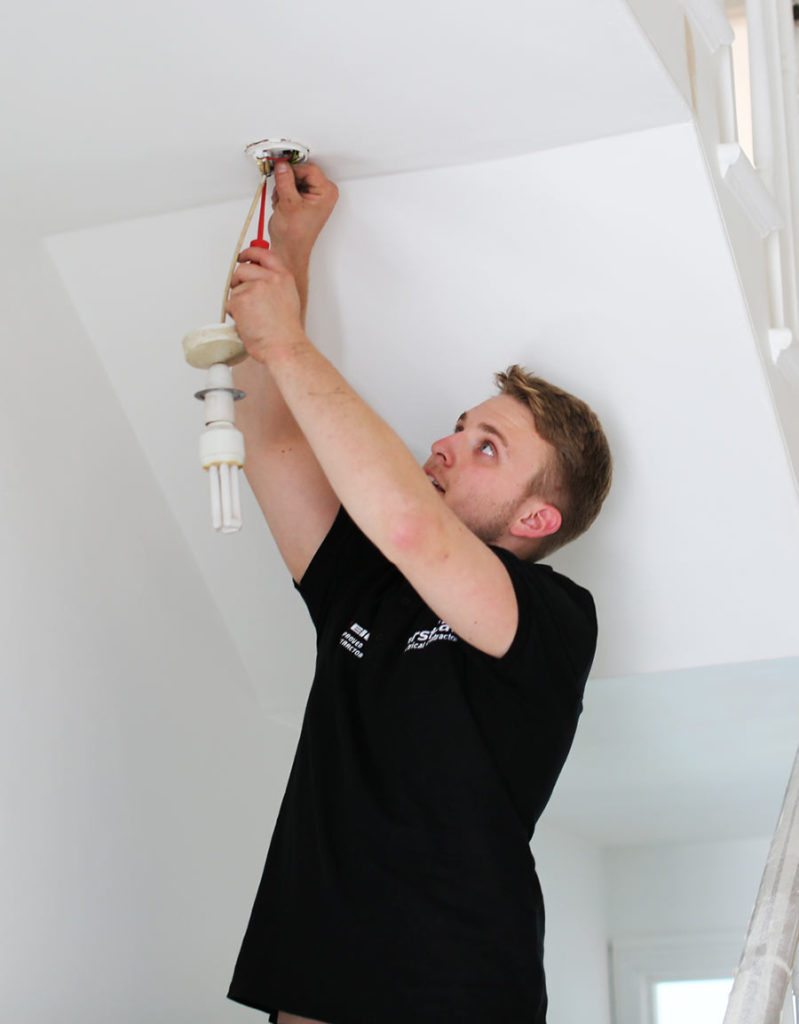
Make sure you use a registered professional to install your smart appliances. Electricians registered with NICEIC are assessed on a regular basis to ensure high standards.
Get in control
Instead of opting for a conventional bank of light switches, consider a wireless system, which allows you to manage your lights via remote control or smart phone from wherever you are.
Smart controls also enable you to set lighting scenes for different occasions. At the touch of a button, the main light in your lounge is switched off, the lamps are dimmed and your ‘movie scene’ is set.
Until recently, smart lighting was dominated by big brands such as Lutron and Crestron, which focused on offering expensive installations. Newcomers on the scene are now offering affordable alternatives. Philips Hue, for example, has a wide number of smart LED lights that you can control via an app and integrate with smart home platforms such as Amazon Echo Plus, Google Home and Apple HomeKit, so you can even control your lighting with your voice.
If you’re particularly forgetful when it comes to flipping the light switch, consider lights that work in conjunction with a motion sensor system. Originally devised for commercial spaces, they’re now available for homes too.
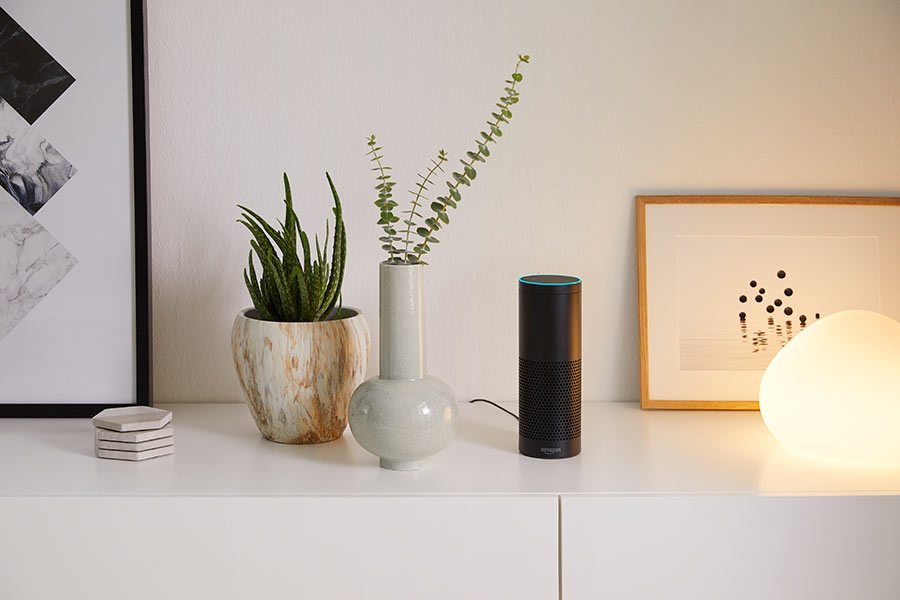
Philips Hue can be switched on and off, and dimmed and brightened using voice commands via integration with Amazon Echo Plus.
Snap up a smart thermostat
Heating is one of biggest energy drainers in the home, so investing in smart heating controls makes great financial sense.
“Working in conjunction with a smart device, these clever systems enable users to turn their heating on and off remotely, set specific temperatures and can even ‘know’ to turn down the heat when someone leaves the building or if the weather changes,” explains Darren.
Top picks include Nest Learning Thermostat, which gets to know the temperature you like when you’re at home and turns itself down when you’re away. It even learns how your home warms up or how draughty it is, so it only uses the energy you really need.
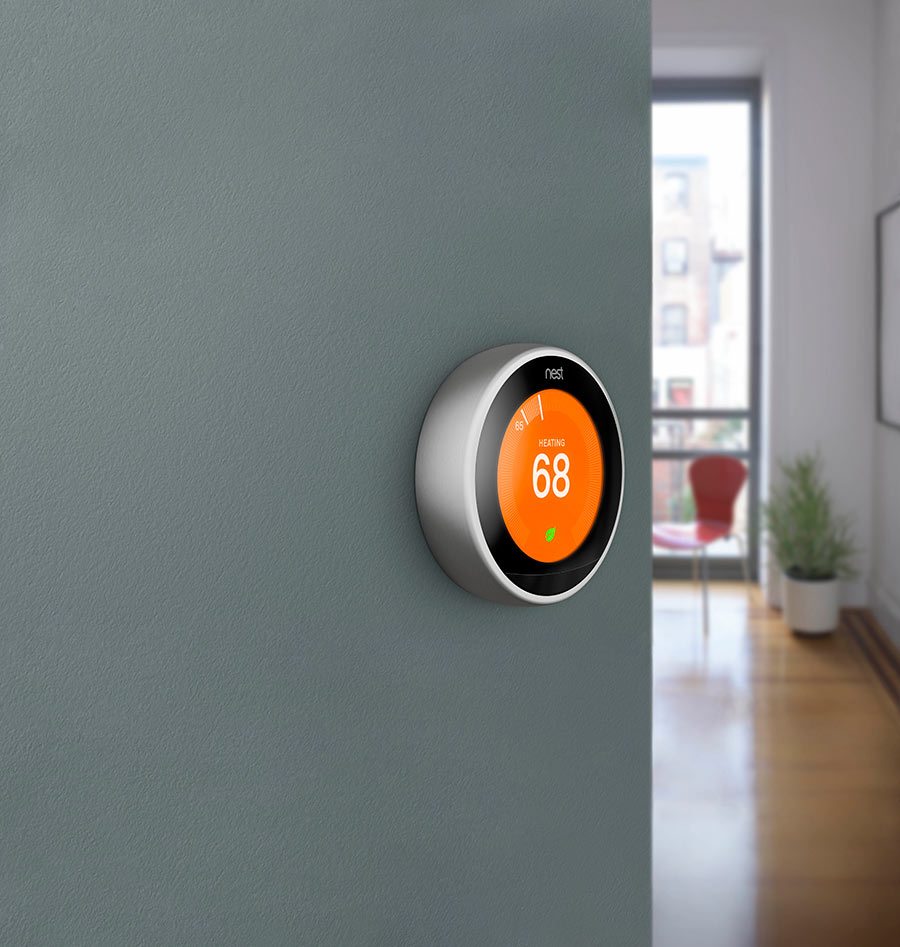
The third-generation Nest Thermostat knows how long it takes to heat your home so you’re comfortable when you get there. When you leave, it automatically turns down your boiler and hot water tank to save you energy.
Discover how triple glazing can make savings and improve the comfort of your home.
Keep an eye on your energy usage
Don’t know why you monthly bills are so high? An energy monitor could help. It won’t save you energy but it will track your usage so you spot trends and high-energy items. Once you know how much power you’re using, you can start making changes that will bring about savings. Just removing phone chargers from sockets when they’re not in use will show as a reduction, for example.
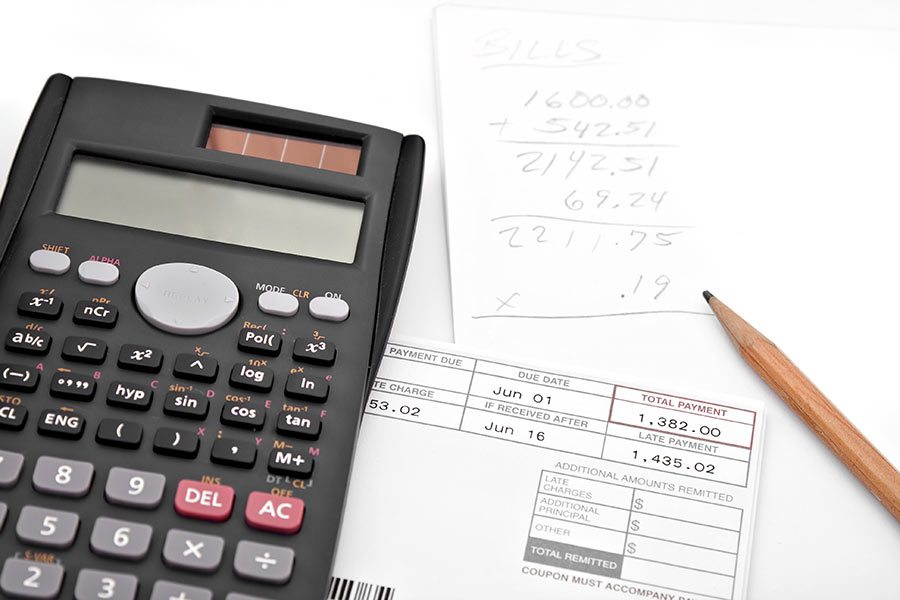
Save with energy-efficient appliances
It’s no surprise that appliances drain a lot of energy, so, when you’re in the market for new ones, check their energy ratings. These are generally given to products based on their size category.
This means that two differently sized appliances with the same energy rating may use quite different amounts of electricity. For instance, an A-rated 180-litre fridge freezer could cost only £39 a year to run, whereas a larger 525-litre fridge freezer with a better A+ rating could cost £52 a year to run.
Find the right appliance for you by looking for the best energy rating for the size you need.
Appliances with intelligent functions can also save you energy – and money – over time. For example, the i-Dos automatic dosing system featured on a selection of Siemens washing machines measures the exact amount of detergent required. Why is this important? Well, incorrect dosage not only damages the fabric, but it also increases water and energy consumption; i-Dos uses only as much detergent, water and energy needed.
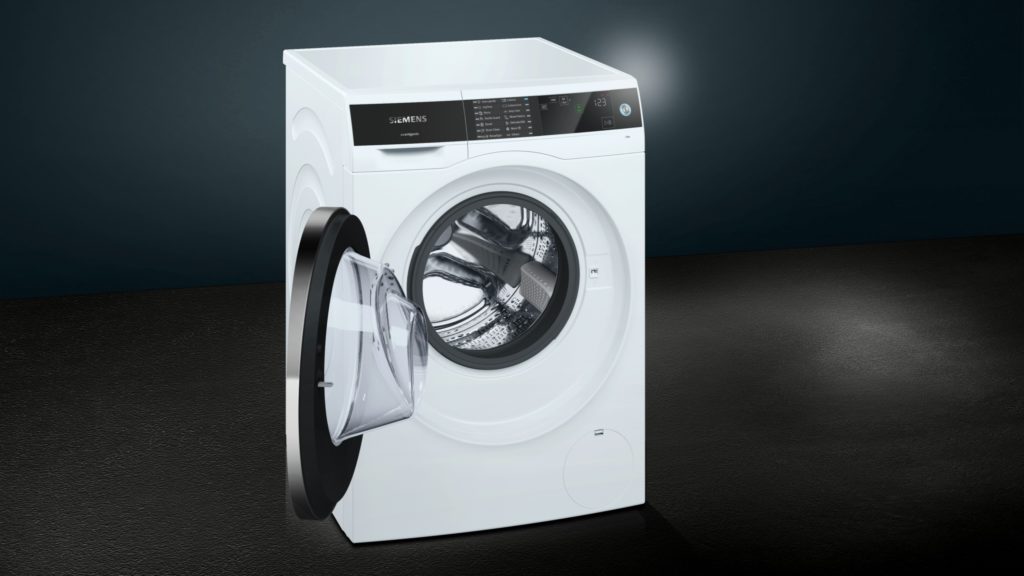
The precise i-Dos automatic dosing system featured on the Siemens WM4UH640GB measures the detergent for you and helps you save water and detergent.